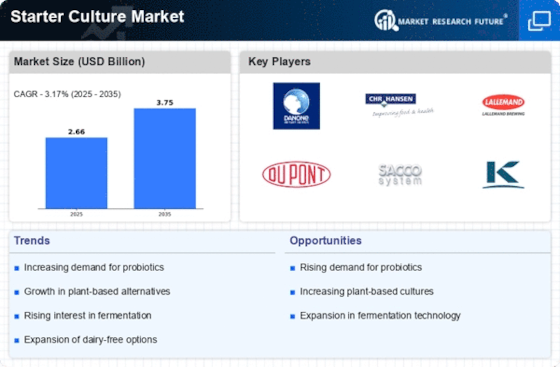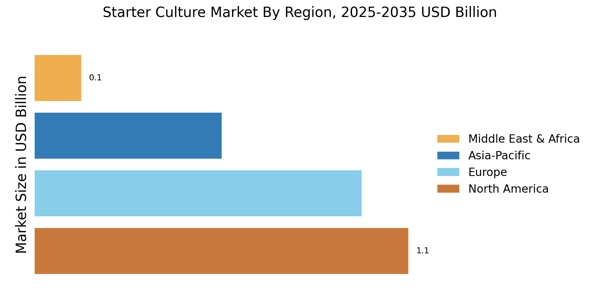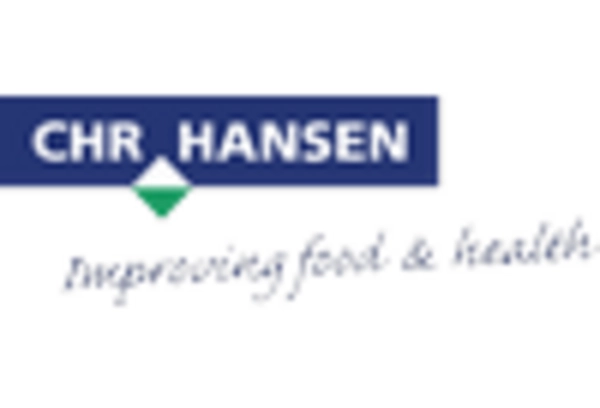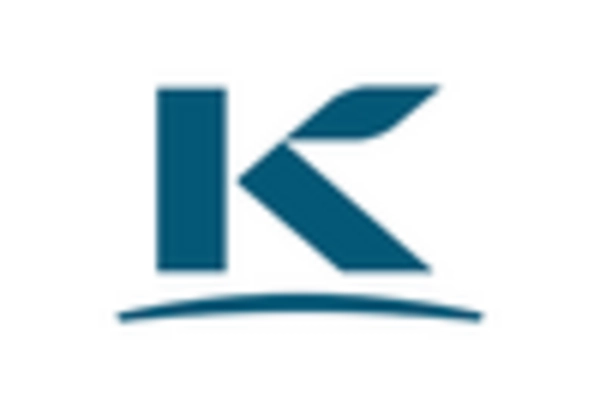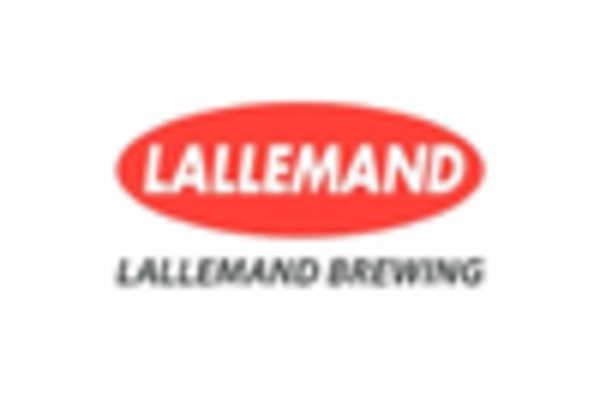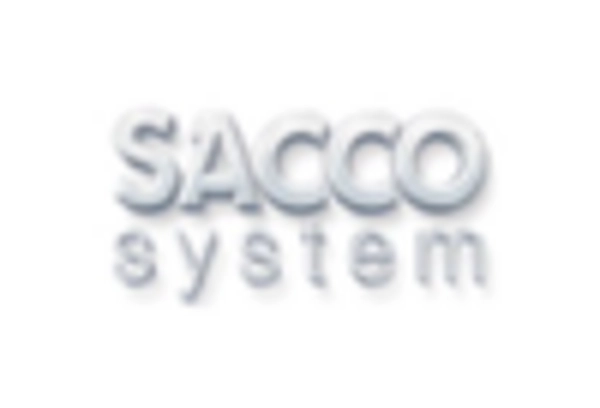Rising Demand for Fermented Foods
The Starter Culture Market is experiencing a notable increase in demand for fermented foods, driven by a growing consumer awareness of health benefits associated with probiotics. Fermented products such as yogurt, kefir, and sauerkraut are gaining popularity due to their potential to enhance gut health and boost immunity. According to recent data, the market for fermented foods is projected to grow at a compound annual growth rate of approximately 8% over the next five years. This trend is likely to propel the Starter Culture Market, as manufacturers seek to develop innovative starter cultures that cater to this rising consumer preference for health-oriented food options.
Expansion of Plant-Based Alternatives
The Starter Culture Market is witnessing a significant shift towards plant-based alternatives, as consumers increasingly seek dairy-free and vegan options. This trend is reflected in the growing production of plant-based yogurts and cheeses, which require specialized starter cultures to achieve desired flavors and textures. Market analysis indicates that the plant-based food sector is expected to reach a valuation of over 74 billion dollars by 2027. Consequently, the Starter Culture Market must adapt to these evolving consumer preferences, leading to the development of new starter cultures tailored for plant-based applications.
Increased Focus on Sustainable Practices
Sustainability is becoming a pivotal concern within the Starter Culture Market, as consumers and producers alike prioritize environmentally friendly practices. The demand for organic and sustainably sourced ingredients is influencing the development of starter cultures that align with these values. Market data indicates that the organic food market is projected to grow significantly, with consumers increasingly seeking products that reflect their commitment to sustainability. As a result, the Starter Culture Market is likely to see a rise in the production of organic starter cultures, catering to the environmentally conscious consumer.
Consumer Preference for Artisanal Products
The Starter Culture Market is benefiting from a rising consumer preference for artisanal and craft products. This trend is characterized by a desire for authentic, high-quality foods that are often produced in small batches. Artisanal producers frequently utilize traditional fermentation methods, which rely on specific starter cultures to achieve unique flavors. Market Research Future suggests that the artisanal food sector is expanding rapidly, with consumers willing to pay a premium for products that emphasize quality and craftsmanship. This shift is likely to drive demand for specialized starter cultures that cater to the artisanal market.
Technological Advancements in Fermentation
Technological advancements are playing a crucial role in the Starter Culture Market, enabling more efficient and controlled fermentation processes. Innovations such as precision fermentation and the use of genetically modified organisms are enhancing the production of starter cultures, resulting in improved consistency and quality of fermented products. These advancements not only streamline production but also allow for the creation of novel flavors and textures that appeal to consumers. As the industry embraces these technologies, the Starter Culture Market is likely to see increased investment and growth opportunities.


